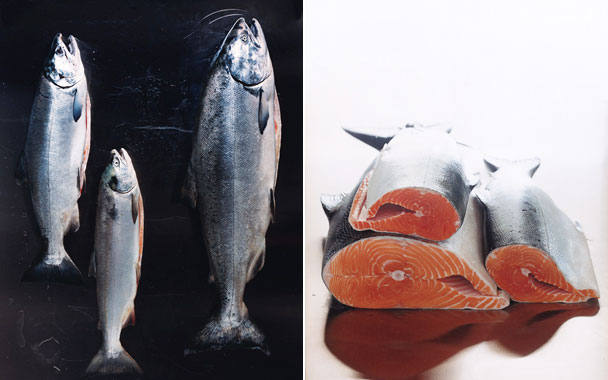Last week, the Victoria Times Colonist and other Canadian newspapers reported that the American Food and Drug Administration had found traces of the potential carcinogen malachite green in United States–bound salmon fillets from a British Columbia aquaculture operation called Creative Salmon Company. Malachite green is a fungicide that has been banned for use in food production for the last 15 years. The paper said that Spencer Evans, the company’s general manager, was “flabbergasted” by the findings.
One wonders why. The Canadian Food Inspection Agency found the same chemical in Creative Salmon fish as recently as 2005.
On a More Hopeful Note . . .
Conscientious consumers may soon have an alternative to farmed British Columbia salmon. Efforts to qualify B. C.’s wild salmon fisheries as sustainable under the strict standards of the Marine Stewardship Council (MSC) moved ahead this month when the council sent the sockeye fishery’s application out for peer review, bringing it one step closer to being able to display the MSC’s coveted blue-and-white logo.
Off-Putting Offsets
At the risk of being condemned for lack of political correctness, something about the notion of dishing out cash to atone in advance for my environmental sins makes me uncomfortable, which is why I am leery of carbon offsets—in essence, paying to fund activities like planting trees or developing alternative technologies that presumably counteract the amount of carbon created by, say, taking an airline flight or buying a new car.
Last week, an American biotechnology company made public a carbon offset plan that is sure to pose a dilemma for any environmentalist. Arcadia Biosciences of Davis, Calif., wants to pay Chinese farmers who grow its genetically modified (GM) rice with carbon credits they can sell for cash.
The somewhat strained logic: Arcadia’s gene-spliced rice needs less nitrogen fertilizer than traditional rice, and therefore growing it emits fewer greenhouse gases.
Forgive me for taking that claim with a grain of salt.




 Pinterest
Pinterest


